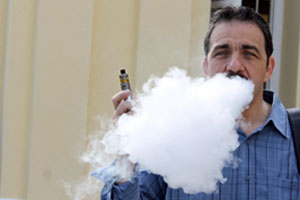BAT developing vaping standards

British American Tobacco said today that it was leading efforts to develop and harmonize standards around vaping products to further reassure consumers of these products’ potential ‘in reducing the harm from smoking’.
The company said that this effort was being made against a backdrop of a growing number of electronic cigarette users globally. It cited the Ernst & Young’s May 2016 report, E-cigarettes: an emerging category, as saying that the number of electronic cigarette users in seven examined countries grew by 86 percent to 5.1 million in 2015.
Marina Trani, Head of R&D at Nicoventures (a wholly owned subsidiary of BAT) will tell delegates at the EuroScience Open Forum 2016 (ESOF 2016) on July 26 that standards need to be harmonised in order to promote innovation, according to a BAT press note. Different rules in different jurisdictions made it overly burdensome and expensive, especially for smaller companies. It stifled growth and innovation, which in turn could stifle the potential these products had for reducing the harm of smoking.
The EU and the US, for example, were worlds apart in terms of how they regulated electronic cigarettes. Draft regulations in the US, to be enacted in August, would require pre-approval before any change was made to a vaping product. Whereas, the EU Tobacco Products Directive required a less-restrictive, six-month prior notification (rather than approval) for ‘substantial modification’.
There was a growing body of evidence that electronic cigarettes were substantially safer than were cigarettes, the press note said. Kevin Fenton, Public Health England’s Director of Health and Wellbeing, had said recently, “The wider body of evidence consistently finds that e-cigarettes are less harmful than smoking”.
BAT said that in 2013 it had become the first tobacco company to launch an electronic cigarette and that it had been proactive in both developing the first voluntary product standard with the British Standards Institute (BSI) and advocating for more harmonised standards. It was currently contributing to the European standards development work.
BAT said too that it had taken a ‘particular leadership position’ in toxicological risk assessment through the publication of its 2015 best practice guide for how to comply with that aspect of the BSI guidelines. The guide helped ‘to safety assess’ flavours for inhalation rather than ingestion. It set out a scientific rationale that would help determine if particular flavours could be used safely.
Trani is due to tell the ESOF that the vaping industry should continue on a journey towards standards that can protect consumers, increase understanding of next generation products, and that are clear and harmonized globally while not inhibiting innovation.